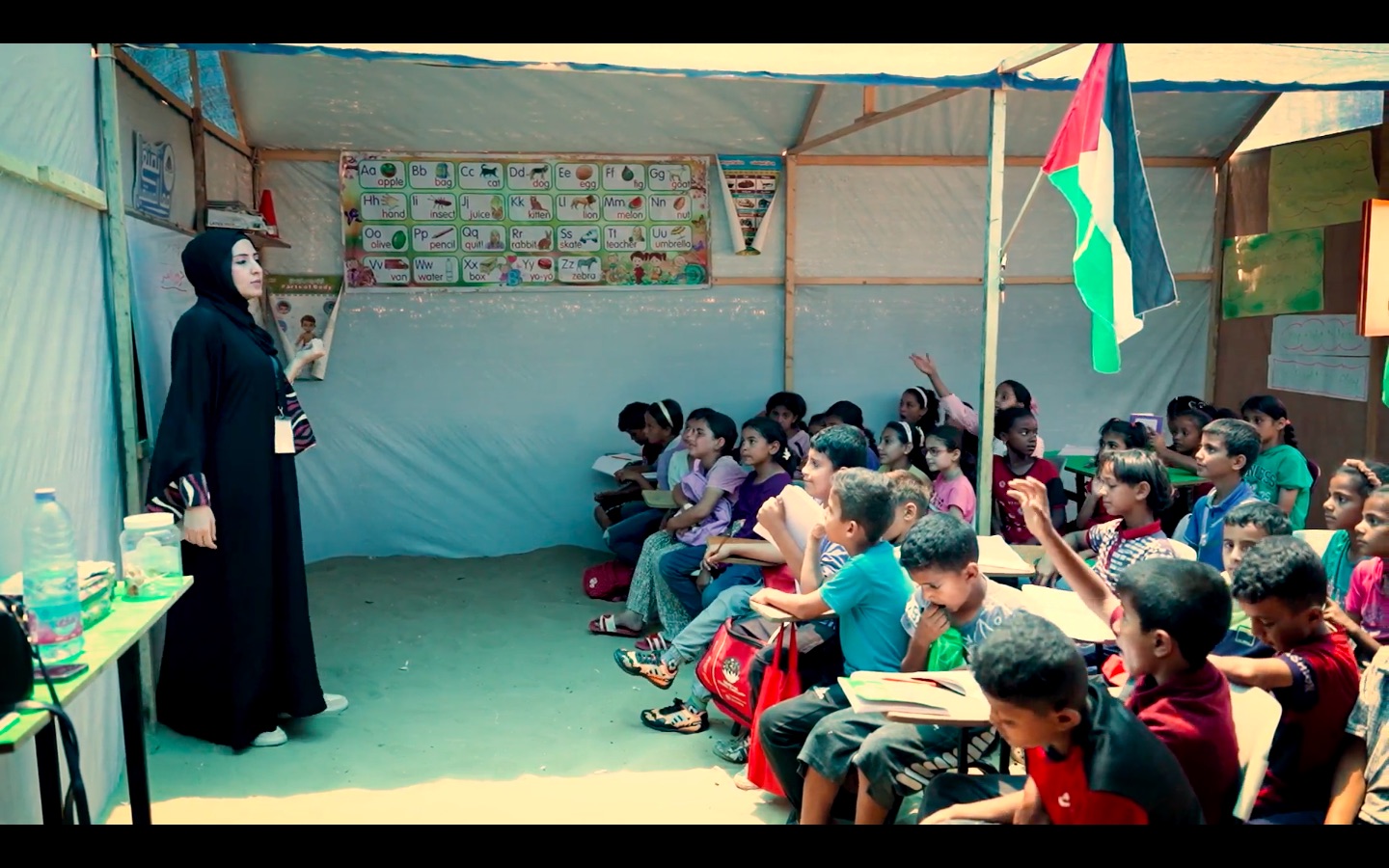Nowhere is safe in Gaza, and this is particularly true for sites of key civilian infrastructure like hospitals and schools. Since October, Israel has damaged or destroyed 80 percent of Gaza’s schools and all its universities, decimating a core pillar of Palestinian society. In spite of this scholasticide, Palestinian educators and students remain committed to ensuring class remains in session. The Real News reports from Rafah, speaking directly with children and their teachers resisting genocide through education.
Producer: Belal Awad, Leo Erhardt
Videographer: Ruwaida Amer
Video Editor: Leo Erhardt
Transcript
Hind Khoudary:
I’m currently in a school that was targeted by Israeli forces with at least
3 air strikes. At one thirty AM in the morning people were sleeping when
the Israeli forces targeted them. All of the floor is still their blood.
Children, women are terrified but unfortunately, they don’t have anywhere
to go. They’re still sheltering in the school.
Narrator:
With more than 80 per cent of schools in Gaza damaged or destroyed, it may
be reasonable to ask if there is an intentional effort to comprehensively
destroy the Palestinian education system.
This is a direct quote from a UN panel of experts, in reference to Israel’s
alleged targeting of educational infrastructure in Gaza.
Upsound:
Look how they ripped it open. They completely destroyed the school.
Iman Ismail, Arabic Teacher:
We have around 70 children in each class. Their psychological state was
ruined. I’ve noticed that the kids really missed school, they were really
eager to start learning again. The difficulties: firstly, the uptake has
been slow, because of the interruption to their schooling. Secondly, the
weather—it’s very hot in the tents in general. The sound of explosions from
the air strikes, during class. We hear explosions a lot during class.
Narrator:
The term Scholasticide, coined in 2009 by Oxford Professor Karma Nabulsi,
specifically references the “systematic destruction of Palestinian
education by Israel”.
Since October 7th, the term has regularly been put to use.
All 12 of Gaza’s universities have been destroyed. 625,000 students are
without a place to study in the crowded camps of Rafah. However, teachers
and community organisers have defiantly set up tent-classrooms. Reflecting
the palestinian belief, in what Nabulsi describes as the enormous “role and
power of education, in an occupied society”.
Salma Abu Awdeh:
We came here despite the difficult circumstances, to learn, to play and to
distract ourselves. We’ve made new friends here and we’re learning the core
subjects: Arabic, English and Math.
Narrator:
Gaza’s children try to focus on their lessons and teachers try to maintain
a semblance of normalcy, all the while the buzz of drones in the background
remains a constant reminder.
Salma Abu Awdeh:
The displacement was really hard. We were displaced from one place to the
next, we haven’t settled. From Beit Hanoun we were displaced to Gaza City,
and from Gaza City we were displaced to Deir Al Balah. Here we’re staying
in a school, and life is really hard. My dream is for the war to end and
that all I hoped for in my life comes true and that I will succeed and
become a doctor.
Malek Hamoudeh:
I missed school a lot. When we go we learn, we benefit. Before the war I
used to go with my friends to school. We would play and learn too, with our
teachers who would distract us. We would write and learn.
Narrator:
Malek Hamoudeh is 10 years old, his father was killed in the last months by
an Israeli air strike.
Malek Hamoudeh:
I lost my dad suddenly, he was martyred like that. He was lost suddenly, we
were sitting like this, my cousin came and told me: “Your dad was killed”.
My heart was, I couldn’t. I felt like I was going to die from how upset I
was about my dad. He was out, yeah. He was looking for something to eat
when the house was hit.
Ghadir Hamoudeh, Malek’s Mom:
Even if there is war, and fear and air strikes, it doesn’t mean that we
stop living our lives.
We need to do things that matter. OK? We need to memorize the Quran, revise
our lessons, we have to keep going to the center where we registered.
Ghadir:
OK, 6 times 9?
Malek:
54
Ghadir:
54 good, 9 times 9?
Malek:
9 times 9, errr, 9 times 9… 81?
Ghadir:
81, right.
Ghadir:
After my husband was killed, I had to be mother and father. I try to give
them a type of safety. It’s hard to deal with children who have lost their
father, in an atmosphere of war and fear. To the point that my children,
whenever I go out or have chores, they say: “we’re scared
you could be killed and we’ll lose you.
Don’t go, stay with us.” But the war doesn’t let me stay, I have to go to
the market, to provide them with food, with drink, with water.
This has all fallen to me. Especially since we’ve been living in a tent.
There’s no water, no electricity, no basic necessities of life. Even the
temperature in the tent is too hot. As much as possible we adapt, but the
situation is really hard for us.
Malek Hamoudeh:
I’ve lived the worst days of my life during this war.
Interviewer:
Why?
Malek Hamoudeh:
Because of displacement and being away from my dad and from my land. It’s
extremely exhausting, no water and no electricity and lots of things. The
heat in the tent: we’re living in extreme heat. It’s hot and there’s no
electricity and there are no lights and there aren’t any of the basic
things that we need.



